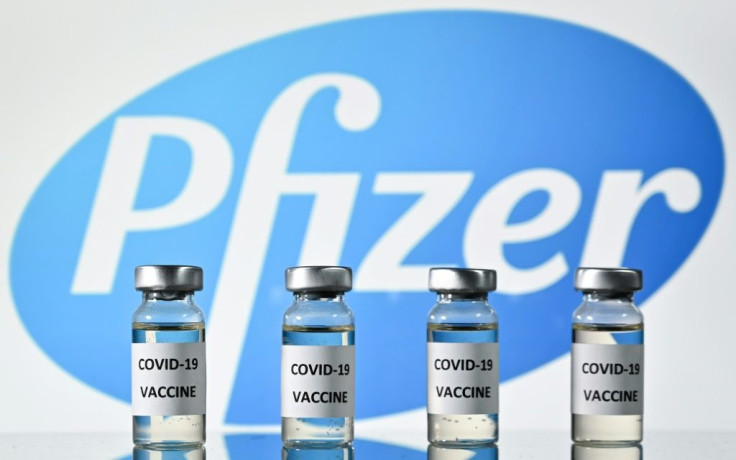Ford To Make COVID-19 Vaccines Available For Workers
KEY POINTS
- Ford will order ultra-cold freezers to store Pfizer's vaccine at -94F
- Ford will offer vaccinations to employees on a "voluntary basis"
- Employers in some industries, like health care, have mandatory vaccination rules
Automaker Ford revealed Tuesday that it has ordered 12 ultra-cold freezers to store Pfizer’s COVID-19 vaccine to ensure that its workers have easy access to it when it becomes available in the U.S.
“We are doing this so that we can make the vaccine available to our employees on a voluntary basis,” Ford spokesperson Kelli Felker said.
Felker told the Detroit Free Press that Ford currently does not have plans to offer incentives to employees who get vaccinated, although she noted a “very fluid situation” when it comes to this matter.
How the freezers will be used and how vaccinations will be provided are still under discussion. Ford was impacted significantly by the COVID-19 pandemic because of a drop in demand in the automotive sector and shutdowns of its facilities across the country.
Many U.S. states and cities have started to buy equipment to safely store millions of doses of Pfizer’s vaccine, which requires a temperature of -70 degrees C (-94F). That is significantly colder than the standard vaccine requirement of 2-8 degrees C (36-46F). These ultra-cold freezers can cost between $10,000 and $15,000.
The Centers for Disease Control and Prevention has advised state health departments against purchasing such freezers, saying it's possible that other vaccines with less extreme storage requirements may be on the way, according to a report.
Companies asking employees to vaccinate is not new, and has been mandatory in certain industries, including health care, for years. And there are reasons why companies allow their employees to be exempt from getting vaccinated, with religious beliefs and underlying medical conditions being two of the biggest.
Mandatory vaccinations may generate conflict in the workplace, especially given the country's anti-vaxxer movement. According to a poll conducted between July and August, 1 in 3 Americans said they wouldn’t get a COVID-19 vaccine even if it were free and approved by the Food and Drug Administration.
Some companies have been concerned about the liability, health and safety issues that could arise over potentially harmful vaccine side effects, experts mentioned in a report.
“Once a vaccination is actually approved by the FDA, we expect the government agencies associated with employment law, such as the U.S. Equal Employment Opportunity Commission to issue formal guidance as to what to do for mandatory vaccinations,” employment expert Stacy Bunck of Ogletree Deakins, Nash, Smoak and Stewart, said in a report.
The efficacy rate for the current coronavirus vaccines candidates have been high. Pfizer’s showed a rate of more than 90% than in trials earlier this month, while Moderna’s had a 95% rate. Pfizer requested an emergency authorization for its vaccine on Nov. 20.

© Copyright IBTimes 2025. All rights reserved.





















